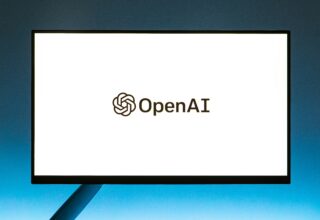By becoming a member of our site, you can add the content you like to your favorites, and present the content you have produced or liked on the internet to our site visitors with the send content option.
Zaten bir üyeliğiniz mevcut mu ? Giriş yapın
By becoming a member of our site, you can add the content you like to your favorites, and present the content you have produced or liked on the internet to our site visitors with the send content option.
You Can Benefit from All Options Exclusive to Our Members by Registering
Next Content:
Social Justice Movements: Addressing Inequality and Systemic Racism
- Home Page
- #DigitalWorkforce
- The Future of Work: Automation, Remote Work, and Gig Economy
The Future of Work: Automation, Remote Work, and Gig Economy

The future of work is being shaped by automation, remote work, and the gig economy, transforming traditional employment models and introducing new opportunities and challenges.
Automation is revolutionizing industries by increasing efficiency and productivity. Artificial intelligence (AI) and machine learning are enabling machines to perform tasks that were once exclusive to humans. This shift can lead to significant cost savings for businesses and allow employees to focus on more complex, creative tasks. However, it also raises concerns about job displacement and the need for upskilling workers to remain relevant in an automated workforce.
Remote work has surged in popularity, especially in the wake of the COVID-19 pandemic. Companies are increasingly adopting flexible work arrangements, allowing employees to work from anywhere. This trend has led to improved work-life balance, reduced commute times, and the ability to tap into a global talent pool. However, it also presents challenges such as maintaining team cohesion, ensuring data security, and managing remote employees’ productivity.
The gig economy is another critical aspect of the future of work. Platforms like Uber, Upwork, and Airbnb have popularized the concept of freelance and short-term contracts, offering workers greater flexibility and the opportunity to be their own bosses. This model is attractive to many who seek autonomy and variety in their work. However, gig workers often face income instability, lack of benefits, and limited job security.
As the future of work continues to evolve, businesses and policymakers must address these changes proactively. Investing in education and training programs will be essential to prepare the workforce for new roles created by automation. Implementing policies that protect remote and gig workers’ rights and well-being will be crucial to ensure that these models are sustainable and fair.
In conclusion, automation, remote work, and the gig economy are key drivers in the transformation of the workplace. Embracing these changes while addressing their challenges will be vital for creating a future of work that benefits both businesses and employees.
We offer our respects and wish you a good reading. – Who Learns What? Team
- On-Site Comments



























